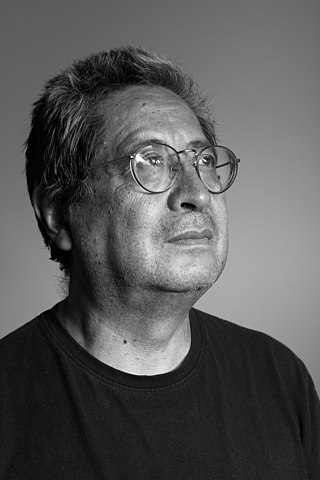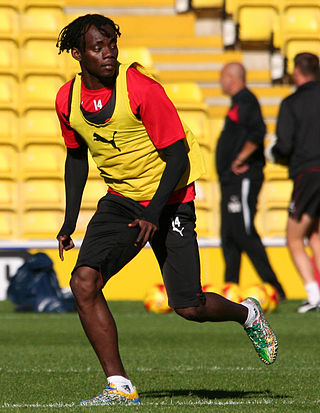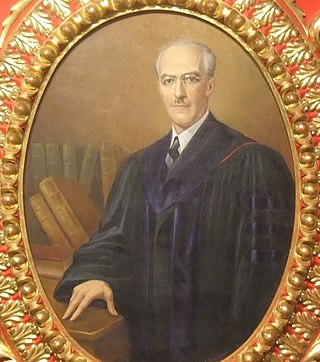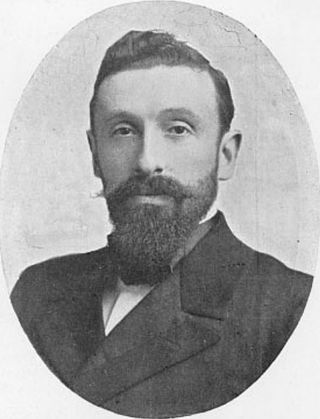External links
Data and recordings
- Arturo Rodas composer's website
- Arturo Rodas Digi-Arts, Unesco
- Recordings of Rodas' works Reverbnation
Scores
- PERIFERIA Sheet Music Contemporary Publishing House, Barcelona.
- Virtualscore internet publishers, Paris
Arturo Rodas | |
|---|---|
| Born | Ecuador |
| Occupation | Composer and University Professor |
| Citizenship | Ecuador, France |
| Education | École Normale de Musique de Paris |
| Genre | Opera |
Arturo Rodas (born 3 March 1954, in Quito) is an Ecuadorian-born French-citizen composer.
Rodas studied at the National Conservatory in Quito, took private composition lessons with Gerardo Guevara, and also graduated in Law at the Universidad Central del Ecuador . Between 1978 and 1980 he was assistant to the French composer José Berghmans in Quito and Paris. He studied at the École Normale de Musique de Paris from 1979-84. There he graduated in counterpoint (Ginette Keller's class) and composition with Yoshihisa Taira as his mentor. In 1983 he attended a composition course with Luciano Berio. He also studied electroacoustic music with Mesias Maiguashca (CERM in Metz) and with Phil Wachsmann in London. He has attended short courses at the IRCAM in Paris. While in París he also attended courses given in several institutions by Michèle Reverdy, Pierre Boulez, Gerard Grisey, Guy Reibel and Iannis Xenakis.
He returned to Ecuador in 1984 where some of his orchestral works were performed by the National Symphony Orchestra conducted by Alvaro Manzano. In Ecuador he became one of the three "notable composers of the following generations". [1] The Banco Central del Ecuador issued a two-disk recording of Rodas works in 1988 as volume one of the series Compositores ecuatorianos contemporáneos. Included are Fibris, along with Arcaica, Clímax, Andino III, iOh. ...!, Mordente, Espacios Invertidos". [2]
"Arturo Rodas championed a contemporary, universal musical style within his country. A number of his works from this period, such as his aleatoric orchestral piece Fibris (1986), were published in Opus, a music magazine that Rodas co-edited. Since emigrating to England in 1990, he has composed works such as The Book of the Orchestra (2002-2003) which is intended to be performed in a house with many rooms so as to allow an “audience” to hear different instrumental groups as they wander from room to room". [3] He has travelled back to Ecuador for concert and teaching activities. He has also worked as a music critic, editor and concert organiser. Rodas's works are published by Periferia Music (Barcelona) and Virtualscore (Paris).
Patterns: personal vision of his sources (Andino I-Andino IV, Laúdico); sound-mass polyphony (Entropía, Arcaica); aleatorism (Fibris, Ramificaciones Temporales); formal research (Obsesiva, La, Melodías de Cámara); and unavoidably the meeting point of patterns ("24.5 Preludios for piano", the "Atonal Fugues" and the opera "El Árbol de los Pájaros"). In that work the plot stems from the interaction music - architecture.
Audio: Piece of Cake Suite in 4 movements, for piano & cd. Pianist: Francis Yang
| Year | Work | Description | Information | Duration |
|---|---|---|---|---|
| 1981 | Entropía, for orchestra | orchestral | ||
| 1983 | Andino III, for flute | solo (flute) | ||
| 1984 | Arcaica, concerto for percussion & orchestra | orchestral | ||
| 1984 | Mordente, for clarinet quartet | instrumental | ||
| 1985 | Clímax, for orchestra | orchestral | ||
| 1985 | Espacios Invertidos, for percussion | solo (percussion) | ||
| 1985 | Ramificaciones Temporales, for clarinet & visual arts
| solo (multimedia) | ||
| 1985 | Güilli Gu, for orchestra & visual arts
| orchestral (multimedia) | ||
| 1986 | Fibris, for orchestra | orchestral | ||
| 1986 | ¡ Oh !, for trumpet | solo (trumpet) | ||
| 1987 | Melodías de Cámara, for chamber orchestra | orchestral (chamber) | ||
| 1987 | ¡ Oh !, for piano | solo (piano) | ||
| 1987 | Obstinado, for violoncelle | solo (violoncelle) | ||
| 1987 | Obsesiva, for narrator, electroacoustics & orchestra | orchestral (electroacoustic) | ||
| 1987 | Introitus, for choir & orchestra | orchestral (choral) | ||
| 1988 | Kyrie, for soloists, choir & orchestra | orchestral (choral) | ||
| 1988 | La, for choir & orchestra | orchestral (choral) | ||
| 1989 | A, B, C, D, for string quartet | instrumental | ||
| 1990 | Había una vez, for Chamber orchestra and choir | orchestral (choral) | ||
| 1991 | Andante, for saxophone piano & percussion | instrumental | ||
| 1992 | Obstinado II, for violoncelle | solo (violoncelle) | ||
| 1992 | Espacios invertidos II, for percussion | solo (percussion) | ||
| 1992 | Andino IV, for flute | solo (flute) | ||
| 1993 | Mordente II, for clarinet quartet | instrumental | ||
| 1996 | Lieder, for percussion | solo (percussion) | ||
| 1997 | Full Moon Business, for chamber orchestra | orchestral (chamber) | ||
| 1999 | 24.5 Preludes, for piano | solo (piano) | ||
| 2001 | Bailecito, for tape | electroacoustic | ||
| 2001 | Fermez les yeux svp, for tape | electroacoustic | ||
| 2001 | El llanto del disco duro, for tape | electroacoustic | ||
| 2002 | Buñuelos, for trumpet | solo (trumpet) | ||
| 2002 | Mandolínico, for mandoline | solo (mandoline) | ||
| 2002 | Laúdico, for lute | solo (lute) | ||
| 2002 | Laúdico, transcription for guitar | solo (guitar) | ||
| 2002 | Mandolínico, transcription for guitar | solo (guitar) | ||
| 2002 | Ta-i-a-o-a, for soprano | vocal | ||
| 2003 | El Árbol de los Pájaros, opera for the voice of the instruments | instrumental (multimedia) | ||
| 2003 | Il était une fois ..., for choir a cappella | vocal | ||
| 2003 | sol-fa-mi-ré-é-do-o-la-a, for choir a cappella | vocal | ||
| 2004 | Piece of Cake, for piano & tape | instrumental (electroacoustic) | ||
| 2004 | Fermez les yeux svp, for tape & film
| electroacoustic (multimedia) | ||
| 2005 | Life Class 2005, 4 pieces dor for piano, tape & film
| instrumental (multimedia) | ||
| 2005 | Organillo, for organ | solo (organ) | ||
| 2007 | The Walk, for pre-recorded soprano, tape & film
| vocal (multimedia) | ||
| 2007 | Anónimo, for winds quartet | instrumental | ||
| 2007 | Reflejos en la Noche, for piano. | solo (piano) | ||
| 2007 | Papeleo sin fin, for contratenor | vocal | ||
| 2008 | Ricercare, for 3 percussions | instrumental | ||
| 2008 | Fuga Atonal I, for oboe d'amore & piano | instrumental (duo) | ||
| 2008 | Fuga Atonal I, transcription for oboe and piano. | instrumental (duo) | ||
| 2008 | Fuga Atonal II, for string quartet | instrumental |
| Year | Work | Performers | Record |
|---|---|---|---|
| 1986 | Güilli Gu, for orchestra | OSN (National Symphony Orchestra of Ecuador) conducted by Álvaro Manzano | Famoso (record No. 3200027), Ecuador |
| 1987 | Arcaica, for percussion & orchestra. Other works by: M. Estévez, G. Guevara, D. Luzuriaga & M. Maiguashca | OSN conducted by Álvaro Manzano | Ifesa (LP 301-0293), Ecuador |
| 1988 | Arcaica, for percussion & orchestra | OSN conducted by Álvaro Manzano | Ifesa (LP-388-0408) |
| 1988 | Clímax, for orchestra | OSN conducted by Alvaro Manzano | Ifesa (LP-388-0408) |
| 1988 | Mordente, for clarinets quartet | Miguel Jimenez | Ifesa (LP 338-0409) |
| 1988 | Fibris, for orchestra | OSN conducted by Álvaro Manzano | Ifesa (LP-388-0408) |
| 1988 | Espacios Invertidos, for percussion | Pablo Valarezo, percussion | Ifesa (LP 338-0409) |
| 1988 | Andino III, for flute | Luciano Carrera, flute | Ifesa (LP 338-0409) |
| 1988 | ¡ Oh ... !, for piano | Christo Iliev, piano | Ifesa (LP 338-0409) |
| 2008 | Anónimo, for Flute, English horn, Clarinet & Violoncello. Other works by: M. Maiguashca, J. Campoverde, P. Freire, L. Enríquez, E. Flores-Abad & M. Estévez | Ensemble SurPlus, Freiburg/Germany, conducted by James Avery | Sumak, CD. Edition: C.C.E.N. del Azuay ** and International Biennial of Painting, Cuenca |
| 2008 | Pan Comido (Piece of Cake), suite for piano & tape, (1st. y 2nd. movements) | Francis Yang, piano | Redasla, CD code 3447972495), Mexico |

Alfredo Pareja Diezcanseco — born Alfredo Pareja y Díez Canseco — was a prominent Ecuadorian novelist, essayist, journalist, historian and diplomat. An innovator of the 20th-century Latin American novel, he was a founding member of the literary Grupo de Guayaquil, which brought a new emphasis to realistic novels.

Theo Constanté Parra was a master Latin American painter part of the Abstract Informalist Movement in Ecuador. In 2005, Constanté won the country's most prestigious award for art, literature and culture, the Premio Eugenio Espejo National Award, presented by the President of Ecuador. Constanté's works are abstract in nature and consist of many colors which meld together amongst loosely drawn geometric lines. Constanté stated that his favorite colors were red, orange and blue and they are the colors that are typically more dominant in his work.
Iván Carvajal Aguirre is an Ecuadorian poet, philosopher and writer. In 1984 he received Ecuador's National Prize for Literature, the "Aurelio Espinosa Pólit" prize, for his work entitled "Parajes". In February 2013 he won the Premio a las Libertades Juan Montalvo.
Juan Ignacio Larrea Holguín, was archbishop of Guayaquil for ten years, and the first member of the prelature of Opus Dei in Ecuador. He was also a distinguished lawyer, frequently consulted about Ecuadorian Civil law and the author of more than 60 books about jurisprudence.

Jorge Carrera Andrade was an Ecuadorian poet, historian, author, and diplomat during the 20th century. He was born in Quito, Ecuador in 1902. He died in 1978. During his life and after his death he has been recognized with Jorge Luis Borges, Vicente Huidobro, Gabriela Mistral, Pablo Neruda, Octavio Paz and Cesar Vallejo as one of the most important Latin American poets of the twentieth century.

Mesías Maiguashca is an Ecuadorian composer and an advocate of Neue Musik, especially electroacoustic music.
Carlos Galo Raúl Bonilla Chávez, better known as Carlos Bonilla was one of the pioneers of the Ecuadorian classical guitar and an important figure in 20th-century Ecuadorian music.

Juan Carlos Paredes Reasco is an Ecuadorian professional footballer who plays as a right-back for Cumbayá F.C.

Jacinto Jijón y Caamaño was an Ecuadorian historian, archeologist, and politician. He was the mayor of the city of Quito from 1946 to 1948. He was a member of the Ecuadorian parliament and a candidate for the presidency of Ecuador. He published several works about the pre-Hispanic history of cultures in Ecuador.
Fernando Jurado Noboa is an Ecuadorian psychiatrist, historian and genealogist.

Domenico Brescia was an Italian composer who taught in Chile and Ecuador, then became known in the United States for writing chamber music as well as musical accompaniment for dramatic performances. Brescia led the Music Theory department at Mills College.
Cristobal Pazmino is an Ecuadorian guitarist and composer, recognized as one of the top guitarists in his country.
Luis Humberto Salgado was an Ecuadorian composer. He was regarded as one of the most influential and prolific composers of his country.
Freddy Cadena is an Ecuadorian orchestra conductor, who is currently resides in Russia. From 2000 to 2006 he taught at Moscow Conservatory. He is a founder and a chief conductor of Amadeus Chamber Orchestra of Moscow Composers' Union.
Gerardo Guevara is one of the key composers in Ecuador. His work combines native music with contemporary techniques.

Miguel Betancourt is an Ecuadorian contemporary artist living in Quito, Ecuador. He was formed as an artist in Ecuador, the United States, and the United Kingdom. His paintings are a fusion of local cultural motives and colors, and Western artistic influence.

The Oeldorf Group was a musicians' collective active in Germany in the 1970s. Based in the village of Oeldorf, near Cologne, their performances emphasized live-electronic music.
Ángel Leónidas Araújo Chiriboga (1900-1993) was an Ecuadorian composer, poet, tax collector and hotelier, best known for his contributions to the pasillo genre.